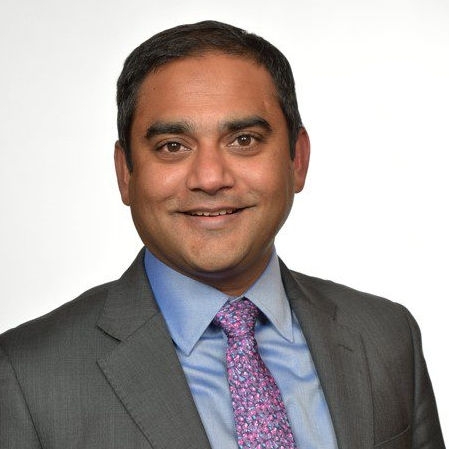Chemotherapy side effects: Top 7 common myths explained
Dr Karthik Ramasamy explains common myths and misconceptions about chemotherapy side effects.
With information so readily available these days, it can be challenging to know fact from fiction. I'm here to answer some common questions and hopefully debunk some popular myths and misconceptions about chemotherapy.
Remember, we encourage you to ask your care team at your GenesisCare centre any questions you might have throughout your treatment with us. We’re here to help and offer you support and advice.
Does chemotherapy always cause hair loss?
This is a side effect often associated with chemotherapy, but did you know it doesn’t always cause hair loss?
Hair loss depends largely on the type of chemotherapy drug you have, but it can also be down to other factors. Everyone experiences side effects differently, and while a particular chemotherapy drug might cause hair loss in one person, it might not in another.
Sometimes you might get full hair loss, but other times it may be slight thinning or no loss at all. At GenesisCare, one technique we have available to support our patients is the ‘cooling cap’ which can prevent or limit hair loss in many cases.
Once your treatment has finished, your hair will grow back. In some very rare cases, your hair may not grow back, but this can sometimes happen if you’re on a very high dose of chemotherapy, your consultant will discuss this with you before your treatment starts so you can decide on your options.
We understand hair loss can have a significant impact on your outlook and wellbeing and worrying about hair loss is understandable. Your nursing team are happy to chat and provide support – whether you’re looking for advice or just need someone to share your worries with.
Does chemotherapy cause immune deficiency?
Chemotherapy can cause temporary low immunity. This is because chemotherapy causes a reduction in the white blood cells found in your blood. White blood cells are responsible for protecting your body against infection. This means that your risk of getting an infection is higher during your chemotherapy. This risk is the highest roughly one to two weeks after having chemotherapy because this is when your white blood cells will be their lowest. Your consultant will provide advice on how you can reduce your risks of getting an infection.
However, your body is resilient, and your number of white blood cells will slowly return to normal, usually before your next cycle of chemotherapy. So, while chemotherapy can weaken your immune system, it isn't forever.
At GenesisCare, we use integrative cancer care to help support you before, during and after treatment. Part of our integrative cancer care programme uses exercise medicine. Exercise medicine has been proven to help your body to heal itself. It can make some therapies work more effectively, speeding up your recovery.
Find out more about exercise medicine and our integrative cancer care programme.
Will I lose weight during chemotherapy?
Chemotherapy itself doesn't cause weight loss, but you might lose weight due to various reasons. For example, chemotherapy can make you feel less hungry. You may feel too tired to cook, and even when you sit down for a meal, you might feel full sooner than expected. Changes in taste or feeling sick are also common side effects.
Although uncomfortable, these side effects are normal, and we understand that worrying about your diet on top of having your treatment can feel overwhelming.
At GenesisCare, our dietitians and nutritionists have teamed up to create different guides on tailoring your diet to address the side effects you're experiencing which can help you maintain a healthy weight.
Does chemotherapy cause weight gain?
It's not typical to gain weight during chemotherapy, but sometimes it does happen. This can be because of other treatments, such as steroids, or changes to your lifestyle. Whatever the reason, we can work with you to determine the cause and how best to help you manage it if needed.
Our integrated care pathways include experienced dieticians and physiotherapists. Through our exercise medicine, either on site or virtually, they can put together a 12-week personalised plan to help address any concerns you might have around maintaining your weight. We’re here to support you every step of the way.
Learn more about exercise medicine and the benefits it provides.
Does chemotherapy cause nausea?
Chemotherapy can sometimes cause nausea – making you feel or be sick. It depends on the type of chemotherapy drug you've been prescribed. However, these days there are many different types of anti-nausea drugs available to prevent or minimise this. If you do feel sick or are being sick, please let us know because we have medicines, we can prescribe to help combat your nausea.
Can you get pregnant after chemotherapy?
If getting pregnant is something you might be thinking about, it may still be possible to get pregnant after chemotherapy, but it can depend largely on the type and dose of chemotherapy drug you've been given, and your age. Some chemotherapy drugs can affect your ability to get pregnant more than others. Sometimes this effect on your fertility (ability to get pregnant) can be temporary and sometimes it can be permanent.
You may find that your periods become irregular or may stop altogether during your treatment. This can be a sign of temporary infertility, and your periods should go back to normal after you have finished treatment. About a third of women who experience period issues during chemotherapy have their cycle return to normal after treatment, but it can take up to 6 to 12 months to fully return to normal.
You're more likely to experience permanent changes to your fertility if you are on higher doses of your chemotherapy drug. This is because higher doses of some chemotherapy drugs can damage the eggs in your ovaries. This likelihood also rises in older women.
Chemotherapy can also cause early menopause. If this happens, your periods will become irregular and slowly stop. Some of the common symptoms of menopause include:
- Dry skin
- Hot flushes
- Loss of energy
- Less interest in sex/vaginal dryness
- Mood swings/feeling low
Your consultant will discuss the benefits and risks of chemotherapy including infertility, and what your options are if you want to preserve your fertility. They will also discuss your options should you want to get pregnant in the future.
Can chemotherapy make a man infertile?
Not all drugs used for chemotherapy cause infertility in men, but some drugs can. Some of the side effects of these drugs include:
- Reducing your sperm count (number of sperm you produce)
- Making it harder to fertilise an egg with your sperm
- Changes the production of testosterone (male hormone) in your body
Sometimes infertility caused by chemotherapy drugs can be temporary, but other times it can be permanent. Factors that can cause permanent infertility include the type of drug you’re on, the dose and your age.
You should first speak with your consultant about the infertility risk of your prescribed chemotherapy drug. Knowing the risk can help you create a plan should you experience infertility. Some men choose to use a sperm bank to preserve some sperm in the event they lose their fertility. You can speak with your consultant about this option before starting treatment. They can refer you to specialist fertility services who can give you advice and support on sperm storage.
Through our partnership with the cancer charity Penny Brohn, you'll have access to counselling, support groups and personal consultations to help support you throughout.
By your side
We know that going through treatment can be difficult, and there can be a lot of information to take in so never feel afraid to ask us any questions. Like me, all of GenesisCare's nursing team are dedicated and passionate. We're here to help you get the best treatment and outcomes possible, but that you also feel supported throughout your cancer journey.
Choosing to have your treatment at GenesisCare means you'll be under the specialist care of our nursing team, who are experts in cancer treatments. We'll get to know you and learn your needs, concerns and preferences so that we can tailor your care to you. Our patients often say how important this relationship has been to them during their care with us.
You'll be given your nursing team's dedicated 24-hour telephone number at your first appointment, enabling you to call them directly should you need emergency support and/or advice during your treatment.
Learn more about systemic anti-cancer therapies, including further information and other FAQs about chemotherapy.
Make an enquiry
To find out more about chemotherapy, including private cancer treatment cost and payment options or to book an appointment.

Dr Karthik Ramasamy, Medical Oncologist, GenesisCare UK.
